The big news in the US Senate’s Permanent Sub-Committee on Investigation’s 340-page report released last week on drug money-laundering by London’s HSBC Bank, the world’s 4th largest, is the answer to the question:
Is there a bigger Drug Lord in the world than Mexico’s Sinaloa Cartel Honcho Shorty (El Chapo) Guzman?
Perhaps surprisingly, the answer is yes. His job's as important at Shorty Guzman's, even if he doesn't get the same kind of press. But first, a quick peek at how and why the Senate Report made one thing— as Richard Nixon used to say—perfectly clear:
Crime pays. At least if you’re a banker.
No crimes. No felonies. Just "serious administrative faults"
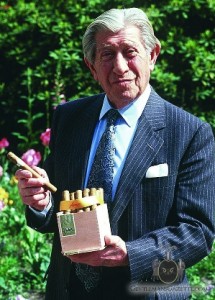 Wearing a bespoke pin-stripe suit is the world's best "get out of jail free" card. But it doesn’t mean never having to say you’re sorry, as the Senate Hearing illustrated.
Wearing a bespoke pin-stripe suit is the world's best "get out of jail free" card. But it doesn’t mean never having to say you’re sorry, as the Senate Hearing illustrated.
Newspapers reported that executives with Europe's biggest bank “were subjected to a humiliating onslaught from US senators" while lawmakers “hammered the British-based bank.”
But spending one day every three of four years tugging your forelock and eating humble pie in front of generally-sympathetic Senators whose re-election you’re bankrolling isn’t all that difficult. The worst that could happen was if you got a headache from all the TV lights.
It’s not like somebody was videotaping you being beheaded with a dull knife.
Laughing all the way to their own bank
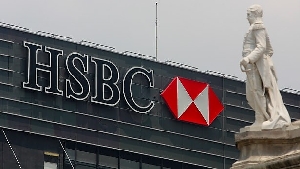 One week after a scathing U.S. Senate report slammed HSBC for laundering at least $9 billion in Mexican drug money, Mexico's National Banking and Securities Commission levied a $27.5 million fine on HSBC, the largest in Mexican history.
One week after a scathing U.S. Senate report slammed HSBC for laundering at least $9 billion in Mexican drug money, Mexico's National Banking and Securities Commission levied a $27.5 million fine on HSBC, the largest in Mexican history.
It was hardly a draconian measure. On the contrary, it showed how good life can be. If you work for HSBC, you can laugh all the way to the bank. Money launderers typically charge hefty fees of 20-30%.
The bank was fined just three-tenths of a penny for every dollar the bank laundered. You don’t need an MBA in Accounting to figure out that somebody's pocketing the difference… a risk-free $3 billion profit.
Why risk free? That’s a good question. Nobody has any good answers.
Laundering drug money through HSBC is as imprtant a job in the international drug trafficking industry as being a coca grower, or even a Cartel Honcho. And its got more perks. As we witnessed three years ago when Wachovia Bank admitted to laundering a stupefying $378 billion of drug money over a half-dozen years, nnobody goes to prison.
In fact, nobody even gets charged.
"'Low-risk' means don't worry about the goddam drug money, got it?"
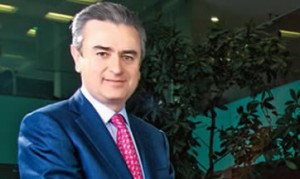 HSBC's chief executive in Mexico, Luis Pena, echoed what bank officials told Senator Levin’s Senate Committee last week. He said the bank recognized its mistakes and that the issue was now settled after the fine, the biggest-ever handed out to a bank in Mexico. "The case is concluded," Pena told Mexican reporters. "As I say, this was about serious administrative faults."
HSBC's chief executive in Mexico, Luis Pena, echoed what bank officials told Senator Levin’s Senate Committee last week. He said the bank recognized its mistakes and that the issue was now settled after the fine, the biggest-ever handed out to a bank in Mexico. "The case is concluded," Pena told Mexican reporters. "As I say, this was about serious administrative faults."
No it wasn’t. It’s about a criminal enterprise acting around the globe with impunity.
During the middle of the most conspicuous drug war in world history in Mexico, HSBC Bank labeled the bank’s transaction in that bedeviled country “low-risk,” meaning there was very little chance the enormous sums the bank was forwarding from Mexico to the US—as much as $9 billion in just a few years—were drug money.
After all, Mexico exports other things too. Pinatas. Tequila. Jalapeno sauce. More.
Bankers get a bad rap
London’s HSBC Bank started as The Hongkong and Shanghai Banking Corporation. It was founded in Hong Kong 150 years ago in the aftermath of the First Opium War, when local merchants felt the need for a bank to finance the growing opium trade between Britain and China.
Many banks offer industry-specific financial specialists, to serve the unique needs of different industry segments: the chemical industry, the energy sector, party items. As the report made clear, HSBC Bank continues to specialize in servicing the specific needs of the drug trade.
What that means is that the Western World’s major media, and most especially the financial press, all got it wrong. Take the Wall Street Journal headline: “HSBC FAILS TO STOP DRUG MONEY LAUNDERING IN MEXICO.”
The bank didn’t fail to stop money laundering. You can only fail at something you’re trying to do. And the report made abundantly clear, without ever stating the conclusion openly, that stopping money laundering was never the bank’s goal.
The bank’s goal was to facilitate money laundering and make a killing doing it. Which it did…
And no bank in the world was better at money laundering than HSBC… except possibly Wachovia Bank, so embarrassingly successful—laundering $378 billion in just a half-dozen years—that like the infamous Chicago Black Sox baseball team that threw the 1919 World Series, the bank was forced to permanently retire their ‘Wachovia’ jerseys and play for a new team, Salt Lake City’s Wells Fargo Bank.
Meet Lord Green
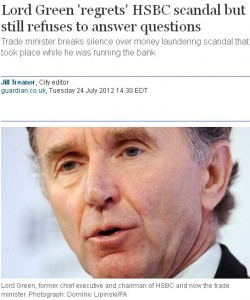 So who is this shadowy Drug Lord on equal footing with Shorty Guzman? During most of the past decade, while HSBC Bank grew and prospered as a global narco-bank, he was the Chairman and CEO.
So who is this shadowy Drug Lord on equal footing with Shorty Guzman? During most of the past decade, while HSBC Bank grew and prospered as a global narco-bank, he was the Chairman and CEO.
His identity may come as something of a shock. But he’s got a cool and oddly appropriate Global Drug Lord-type name. It's easy to pronounce; with no hyphenated multiple last names, like so many pesky Drug Lords from Central and South America.
Meet Lord Green. Or, to give him his full name, Lord Green of Hurstpierpoint.
He's currently Britain's Minister of State for Trade and Investment.
Global Narco-Bank HSBC, the evidence in the 340-page report clearly indicates, wasn’t being snookered by sly money launderers representing sophisticated international drug traffickers. HSBC was an integral and enthusiastic partner in the drug trade.
They were only following orders from the top.The buck stopped with Lord Green.
If the US policy of zero tolerance—which lets the Coast Guard confiscate everything from kayaks to cabin cruisers for a single marijuana seed—were applied to HSBC, Federal marshals would even now be showing up at the homes of the bank’s far-flung top executives and asking for the keys to their company cars.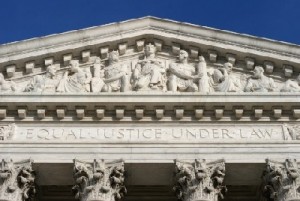
So, is that happening? Yes it is, one knowledgeable observer told us:
Just as soon as the nine American Supreme Court justices get around to interpreting the words chiseled in marble above the Court’s handsome façade—Equal Justice Under Law—to mean, well, “Equal Justice Under Law.”
Until then, he implied, don’t hold your breath.

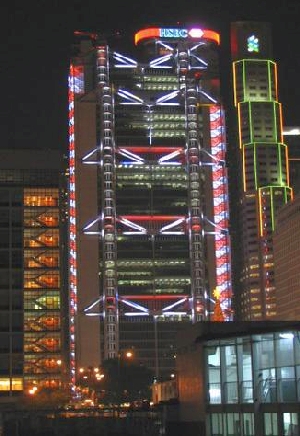

2 responses to “HSBC Narco-Bank: Too big to fail, too big to go to jail”
[…] Running the drug money laundry is very profitable. Laundering drug money through HSBC is as imprtant a job in the international drug trafficking industry as being a coca grower, or even a Cartel Honcho. And its got more perks. As we witnessed three years ago when Wachovia Bank admitted to laundering a stupefying $378 billion of drug money over a half-dozen years, nnobody goes to prison. […]
why cant I post anything on this site to fb? Can you fix that, this has to be known by everyone, you know that corperate media is a bunch of elite ass kissing lowlifes